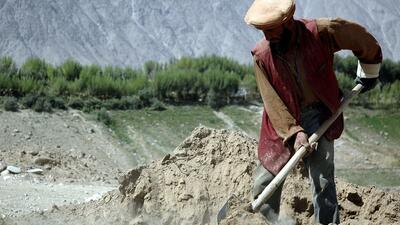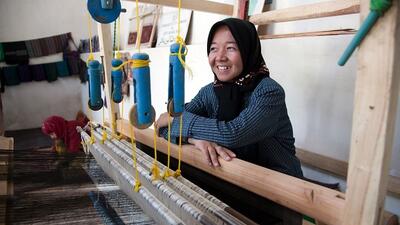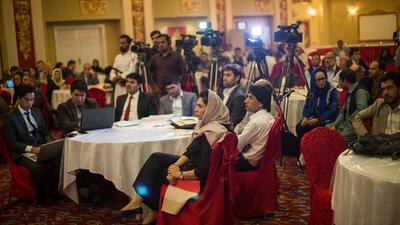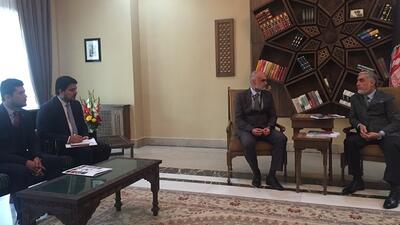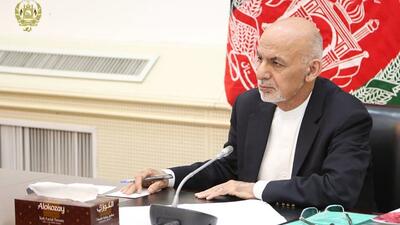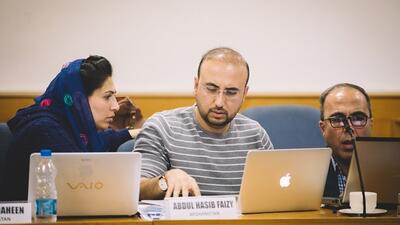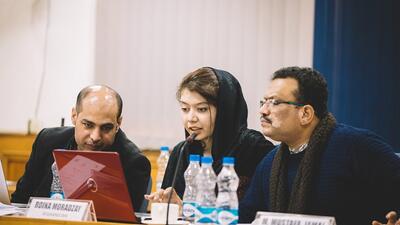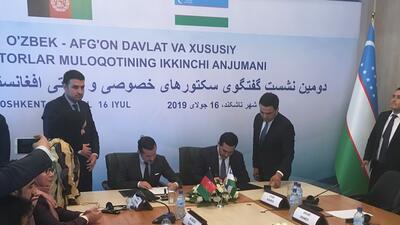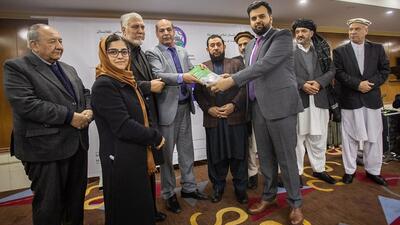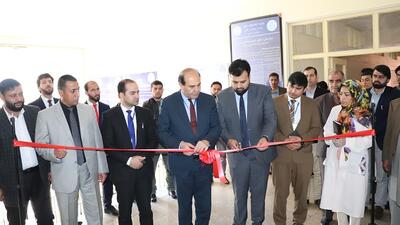New training programme for Afghan trade officials kicks off in New Delhi
Trade officials from Afghanistan last week started a new training programme aimed at bolstering their capacity to formulate policy, carry out regulatory reforms, and increase the country’s competitiveness in regional and international markets, through a project implemented by the International Trade Centre (ITC).
Twenty officers with the Afghan Ministry of Commerce and Industries (MoCI), as well as representatives from business associations and academia participated in the first week-long segment of the one-year course in New Delhi from 9 to 13 October. An additional 20 officers will complete the same course in 2018 and 2019.
Run in collaboration with the Centre for WTO Studies (CWS) at the Indian Institute for Foreign Trade (IIFT), the trade policy capacity building programme is part of the European Union-funded Advancing Afghan Trade project. The initial week of training provided an introductory overview of the international trade system and Afghanistan’s place in it, and was meant to lay the foundation for subsequent training sessions.
“The training that participants receive here will be instrumental in familiarizing them with international trade regulation and global trade capacity, and promoting their capacity to perform their respective functions better,” said Kamila Sidiqi, Afghanistan’s Deputy Minister of Commerce and Industry, while formally inaugurating the course. “This multipronged training at the CWS will enable Afghanistan to have a greater ownership of the process for ensuring compliance with the World Trade Organization (WTO) framework and ensure sustainability behind the life of the project.”
In her address to the opening ceremony, Indian Commerce Secretary Rita Teaotia, recognized ITC’s work “to support new least developed country (LDC) members to integrate into the multilateral trading community and the WTO.” The New Delhi-based training programming would bring India and Afghanistan closer together, she added, describing the initiative as a reflection of “the kind of historical closeness that India has with Afghanistan, and our shared values in terms of our commitments to democracy, and commitments to multilateral trade agreement."
According to Jean-Sébastien Roure, who heads the project for ITC, the initiative is as much about building the capacity of MoCI as a sustainable institution as it is about equipping Afghan officials with specialized trade policy knowledge. The courses themselves will cover topics such as trade analysis, trade diplomacy and trade litigation, as well as how to monitor compliance and calculate the effects of trade agreements. In-class training will be followed up by ‘on-the-job’ coaching to refine participants’ professional skills. In addition, experts from Kabul University and the Afghanistan Public Policy Research Organization (APPRO) are also participating in the programme, with the goal of ultimately being able to teach the curriculum to Afghan government officials and businesses, which will be simpler and more cost-effective.
“It is a matter of pride to partner with MoCI in the capacity building effort as Afghanistan embraces international trade as an engine of growth and development,” said Abhijit Das, who heads the CWS and is overseeing the implementation of the training programme.
Mukesh Bhatnagar, a professor at CWS, said the curriculum would help Afghanistan “develop a good talent pool for handling complex WTO issues.”
Participants in the programme expressed satisfaction with the first week of training. “Programmes like this will give us tools for building capacity of our government officials to increase their expertise in international trade,” said Zabihullah Mudabber, Director of WTO Affairs at MoCI. He is looking ahead to building an equivalent of the CWS in Kabul, “for the purposes of institutional building, capacity building of government employees, and public awareness.”
Ehsan Saadat, a research project manager at APPRO, said the programme’s main benefit would be “to help Afghans in their trade negotiations with other countries,” so that they can best pursue the country’s interests.




